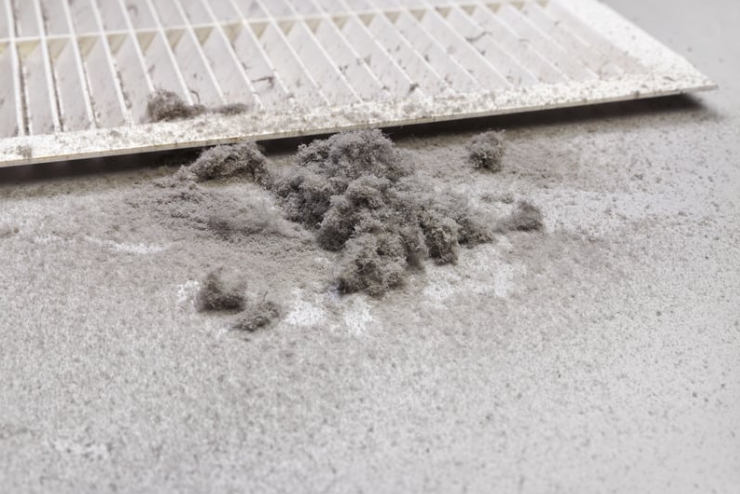Why Your Air Conditioner Smells Musty
- To The T Plumbing and Heating

- Jun 24, 2025
- 3 min read

Air Conditioner Smells Musty? Here’s What to Do
Why Your Air Conditioner Smells Musty
Noticed a musty smell when your air conditioner kicks on? You’re definitely not the only one. It’s a common complaint once the weather heats up.
That damp, funky scent usually points to something going on inside the system, and luckily, it’s often a fixable one. Let’s walk through what might be behind the smell, what you can do on your own, and when it’s time to get a pro involved.
What Causes a Musty Smell in Your Air Conditioner?
Cool air is a lifesaver on a hot day, unless it comes with the smell of a wet basement. A musty odor coming from your air conditioner usually means there's moisture hiding somewhere it shouldn't be. Here are a few common causes:
Mold or mildew growth: Damp spots inside your unit or in the ductwork can invite these in.
Dirty or clogged filters: Filters that haven’t been changed in a while can trap moisture and grow mold.
Blocked drain lines or full pans: If water can’t drain properly, it builds up and creates the perfect conditions for that musty smell.
High humidity in your home: If the air inside your house feels sticky, it’s likely contributing to the issue.
These problems can impact more than just how your home smells. They can mess with your indoor air quality too. If the stink sticks around, it’s time to look into it.
How to Identify the Source of the Smell
Take a breath and give your system a quick check before you assume the worst. Figuring out where that musty smell is coming from can help you decide what to do next:
Look at your air filter. If it’s dirty, discolored, or smells funky on its own, swap it out.
Check the drain pan. Standing water or buildup is a red flag.
Sniff near the vents. If the smell is strongest there, the problem might be farther down the line.
Notice the timing. A smell that shows up right when the system turns on could point to the unit itself. If it hangs around, the ducts might be the issue.
If anything looks off and you’re unsure what to do, stop there. It’s better to let someone take a closer look than risk making the issue worse.
DIY Fixes to Try First
If the musty smell isn't too strong or widespread, there are a few steps you can try at home:
Change your air filter. A fresh filter can help stop odors and improve airflow.
Flush the drain pan and drain line. Pour a mix of warm water and vinegar down the line to clear out any buildup.
Use the fan-only setting. Letting the fan run can help dry out lingering moisture inside the unit.
Gently clean areas you can reach. If you see any grime or mold, wipe it away with a damp cloth and a mild cleaner.
Always make sure the unit is turned off before you do anything inside it. If you spot rust, leaks, or anything that looks more serious, it’s best to stop there. A technician can go deeper, check hidden areas, and keep small issues from turning into expensive problems.
When You Should Call a Professional
If the musty smell is hanging around after you’ve cleaned and checked everything you can, it might be time for some help. Keep an eye out for these signs:
The smell comes back even after you change the filter and clean visible parts.
There’s rust, mold, or water pooling where it shouldn’t be.
The odor is strongest when your AC kicks on.
The system hasn’t been checked or maintained in a long time.
There could be something deeper going on, like mold inside the ductwork or an issue with drainage. A technician can take a closer look and help stop the problem before it gets worse.
How to Prevent Musty AC Smells in the Future
You can keep that musty smell from coming back by staying on top of a few simple tasks:
Replace your filters every one to three months. Mark your calendar if needed.
Get seasonal maintenance checks. Catching small issues early can make a big difference.
Keep indoor humidity low. Use a dehumidifier if your home tends to feel muggy.
Inspect and clean your ducts regularly to prevent buildup.
Consider adding a UV light to help stop mold from growing inside the unit.
None of this takes a ton of effort, but it helps your system stay fresh and keeps the air in your home feeling cleaner.
_PNG.png)

